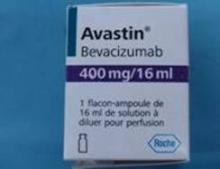The discovery of fake Avastin and other unauthorized cancer drugs in the United States is putting added pressure on oncologists already struggling with shortages of critical chemotherapy agents and sky-high prices for therapies their patients need but may not be able to afford.
The Food and Drug Administration tracked the counterfeit bevacizumab (Avastin) to at least one foreign supplier and identified 19 medical practices in the United States that purchased unapproved cancer medicines, possibly including the counterfeit.
Discovery of the fake followed an agency warning that the ongoing shortage of injectable cancer drugs "may present an opportunity for unscrupulous individuals to introduce non–FDA-approved products into the drug supply."
At that time, it advised health care providers about the risks of purchasing unapproved injectable cancer medications that are not in short supply from unlicensed sources. The agency named Faslodex (fulvestrant), Neupogen (filgrastim), Rituxan (rituximab) and Herceptin (trastuzumab) – but not Avastin – in the warning.
Subsequently, the United States Attorney’s Office for the Eastern District of Missouri announced that a physician in East St. Louis was indicted on charges of distributing and receiving "misbranded and adulterated" prescription drugs, including Neupogen, Heceptin, and Rituxan. Dr. Abid S. Nisar pled guilty to one misdemeanor count of "misbranding drugs" and will be sentenced on May 25, 2012, according to the government statement.
Impact on Patients Unclear
The widely publicized Avastin case raises two issues for oncologists and patients, according to Dr. J. Leonard Lichtenfeld, deputy chief medical officer for the American Cancer Society.
The "immediate and practical" question concerns the impact on patients who miss their scheduled treatment because of the fake. "Any time that you have a cancer treatment regimen, you’re obviously dealing with a life-threatening illness," he said. "You want to be sure that patients get the right drug at the right time and the right dose. Anything that interrupts that is potentially problematic."
Avastin is "a mainstay of cancer treatment," he noted: a drug that’s used in the treatment of lung cancer, kidney cancer, colon cancer and brain cancer. "If someone is depending on this drug as a lifesaving treatment, and they’ve gotten this counterfeit drug and the disease has progressed that becomes very problematic."
But putting a timetable on the damage is difficult, according to an oncologist whose research team was instrumental in securing approval of Avastin for the treatment of the aggressive brain tumor glioblastoma multiforme (GBM).
"Bevacizumab is the single most active drug for recurrent GBM and may well be the same in newly diagnosed GBM," Dr. Henry S. Friedman, said in an interview.
"One single missed dose isn’t good, but it would be challenging to say that one missed dose was going to have a huge impact. ... Certainly the damage is incremental. The more time that you’re taking the counterfeit drug, the more harm is being done to the patient," observed Dr. Friedman, deputy director of the Preston Robert Tisch Brain Tumor Center at Duke University in Chapel Hill, N.C.
That said, Dr. Friedman added, "One could argue that with cancer, the moment that you give it a chance to resurface, is the moment that you find it explosive. So we’ve had patients in whom we’ve stopped Avastin because we thought their tumor was eradicated, and the tumor has come back within 2 months ... that’s two doses of Avastin that were been missed," he said.
Trust Undermined
For Dr. Lichtenfeld, the undermining of trust is a second, no-less-serious issue arising from the Avastin fraud.
"It’s tough enough to have advanced cancer," he said. "One can only imagine the impact that counterfeit medication can have on destroying the trust of doctors, patients, and families alike in our ability to effectively treat patients with cancer."
In times of drug shortages, oncologists need to be especially wary, Dr. Lichtenfeld said. They should be asking: "What guarantees do you have that the drug that you’re purchasing on the gray market ...are appropriately manufactured by the company and industry in accordance with usual practice?"
The gray market refers to the trade of any commodity – cancer drugs, in this case – through distribution channels which, while legal, are unofficial, unauthorized, or unintended by the original manufacturer.
"It is that chain of custody from the manufacturers to the distributors to the doctor’s office that is truly important," Dr. Lichtenfeld said. "[The Avastin fraud] may put more responsibility on the shoulders of oncology practices to make sure that their drugs are properly sourced."


